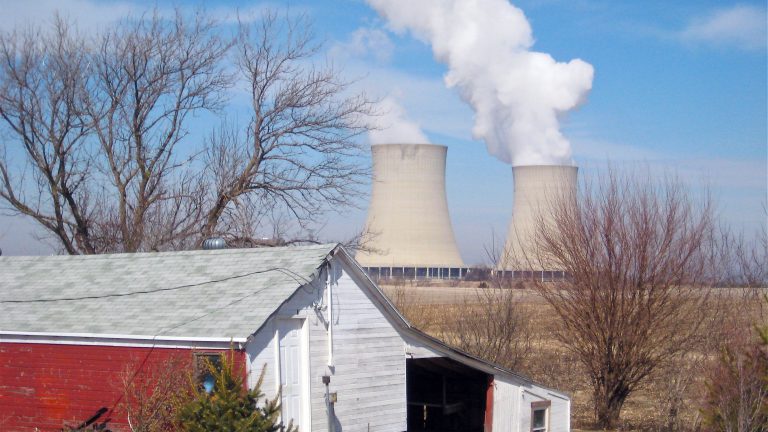CHAMPAIGN — Proponents of nuclear power in Illinois are rallying together in hopes of preventing the decommissioning of two nuclear power plants — the Byron and Dresden Generating Stations. Exelon announced late last year that it plans to retire the two plants in the fall due to financial concerns. Both stations are licensed to operate for another 10-20 years.
Listen to this story here.
Nuclear power advocates say decommissioning Byron and Dresden will not only derail Illinois’ plan to reduce its dependence on fossil fuels, but will also put thousands of Illinoisans out of work and will reduce the amount of tax dollars going to local communities and school districts.
Currently, more than half of the state’s electricity comes from nuclear power. It also accounts for 90% of Illinois’ carbon-free power, and advocates argue its key to moving Illinois toward its clean energy goals.
“There’s no realistic path to 100% carbon-free energy by 2050 without the sound and reliable energy that’s produced at our nuclear power stations,” said State Sen. Sue Rezin (R- Morris) during a webinar hosted by the American Nuclear Society. Rezin represents Illinois’ 38th district, which is home to three of the state’s six nuclear power plants.
Some opponents of nuclear power argue that the waste generated by nuclear reactors can remain radioactive for thousands of years, and can be dangerous and harmful to the environment.
But Rezin says not only is it a clean energy source, it’s also more reliable than some renewable energy sources like wind and solar power. She says mass power outages, like the one that occurred last month in Texas, prove that nuclear is a more resilient power source.
“We always flip the switch and the power comes on, right?” she said. “Because of this unfortunate event in Texas, [people can understand] the importance of having [nuclear power] built into our system.”
According to Nuclear Powers Illinois, during the 2014 polar vortex, nuclear power provided the most reliable source of energy compared to other sources that experienced operational issues, like icing.
During the webinar, advocates also spoke about the economic impact the Byron and Dresden Generating Stations have on local communities. In addition to providing thousands of jobs for highly-skilled Illinoisans, each station provides tax revenue dollars to local school districts.
Kent Bugg is the Superintendent of the Coal City School District, which receives at least half of its revenue from taxes generated by the Dresden station. He says the announcement caught him off-guard.
“If you knew that in 10, 15, 20 years, you were going to lose 50% of your income, it wouldn’t be easy, but you could make plans to figure out how you’re still going to function,” he said. “If I told you you were going to lose 50% of your revenue tomorrow, that’s a very very different situation.”
Bugg says Dresden’s closure will be devastating to the school district, which will likely have to make significant programmatic cuts to account for the lost revenue.
Dresden is scheduled to close in November and Byron in September.
Dana is a reporter for Illinois Public Media. Follow her on Twitter @DanaHCronin.

